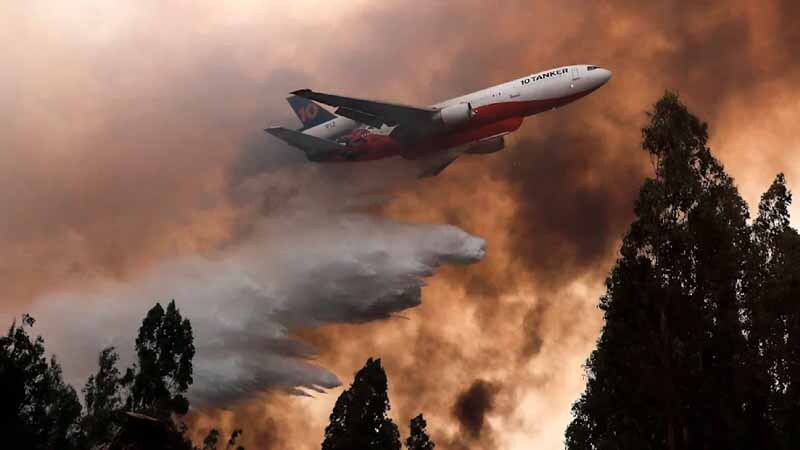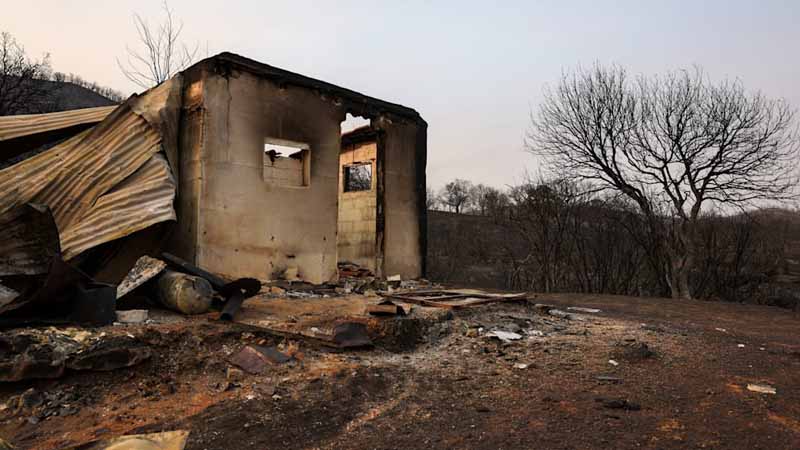 News Staff
News Staff![]() -
August 27, 2023 -
Recreation
Wild Fires 2022
worldwide
-
2.6K views -
0 Comments -
0 Likes -
0 Reviews
-
August 27, 2023 -
Recreation
Wild Fires 2022
worldwide
-
2.6K views -
0 Comments -
0 Likes -
0 Reviews

DLNews News Staff:
The world seems to be on fire. NASA's wildfire map shows red spots across the globe, from Africa to Australia. Canada has been fighting fires for months; over a thousand are there.

The US Space Agency monitors fires and thermal anomalies using satellites. At the same time, the map is also deceptive: Of course, the red areas are not entirely on fire. The points that mark the affected areas are superimposed. If you zoom in more, the picture is put into perspective.
The holiday paradises of Tenerife, Turkey, Greece, and Hawaii (USA) were hit by the worst fire disasters in years. The current forest fires in northeastern Greece are the largest in the history of the European Union. Seventy-three thousand hectares burned!

Turkey: A few days ago, a runaway fire raged near Kayadere, a village in Mardin province pic6- Greece: The bodies of 18 refugees were found in this burned-out barn near Avantas last Wednesday.
Why are fires breaking out more and more often around the world?
"In recent decades, the number, intensity, and impact of forest fires have increased worldwide, but not the total area burned," says Lindon Pronto from the European Forest Institute in Bonn.
According to the expert, what sounds seemingly nonsensical can be explained as follows: "More than 100 years ago, people in the Mediterranean region in Europe and North America regularly made controlled fires outside of the summer to burn branches and shrubs. This reduced the fire load in the forest. The fire remained in the ground area, and the trees and the forest were prevented from burning down completely, as we are experiencing today.” As a result, the areas burned down by fire were no smaller overall than today; the damage to the forest and the CO2 emissions were much lower. "People have forgotten this natural fire regime," says Pronto.

- Canary Islands: Three Military Emergency Unit (UME) members fought a fire in Tenerife on August 17 that devastated around 4000 hectares of the island.
Rural exodus is a problem.
"Climate change has increased extreme weather events such as heat waves and droughts." But rural exodus is also a problem in many countries. Large areas that farmers used for centuries lie below today.
Pronto: "Now these landscapes are much more overgrown and flammable." Another reason is that humans are now less able to deal with fire and its dangers.

The bodies of 18 refugees were found in this burned-out barn near Avantas last Wednesday.
What are the causes of forest fires?
According to UN estimates, 90 percent of forest fires worldwide can be traced back to human causes. Expert Lindon Pronto: “In some regions in Canada or Russia, there is a very high percentage of naturally occurring fires such as those caused by lightning strikes. In Western Europe or Southeast Asia, almost 99 percent of fires are artificial.”
Will there be holiday regions that are expected to burn every summer?
Pronto: "Yes, extreme fire behavior and fires continue to increase in the Mediterranean." This also applies to central and north-western Europe.

Hawaii: The roof of the Waiola Church (200 years old) on Maui catches fire on August 8th. At least 115 people burned to death in the firestorm.
Why are the current fires so challenging to extinguish?
Lindon Pronto: "In Canada and Greece, strong winds, high temperatures, and difficult-to-access terrain are the main contributors to extreme fire behavior."
The size and number of fires in Canada span vast areas. A system with many volunteer firefighters, like in Germany or Austria, only exists in some other countries. In addition, bringing large amounts of water to fires in forests is difficult. Often, only firefighting planes help.

Athens: Villagers flee a barrage of fire in Chasia, a suburb of Athens, after the fire department ordered the evacuation last Tuesday.
How do we change the forests to reduce the fire risk?
“Fire is dangerous for all types of forests, and no forest is resistant to fire. But we can make our forest less susceptible to forest fires," says Somidh Saha from the Institute for Technology Assessment.
Desert Local News is an invitation-only, members-based publication built on fact-checked, non-biased journalism.
All articles are publicly visible and free to read, but participation is reserved for members—comments and discussion require an invitation to join.
We cover local, state, and world news with clarity and context, free from political agendas, outrage, or misinformation.